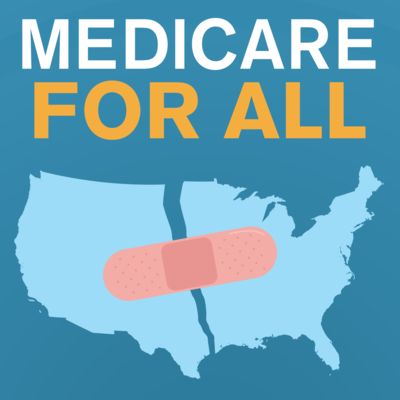episode 39: Denials at the ER: A Profit-Making Precedent
United Healthcare, the largest insurer in the US, announced this May that they may start denying claims from the ER if it turned out the visits were not actual emergencies. Like almost everything in our healthcare system, this policy doesn’t actually make sense on a moral or even a financial level. We discuss the surprisingly long history of this “new” policy, its implications and impact, and the pushback from doctors and patients.
Show Notes
Ben and Stephanie break down the latest evil plot of the insurance industry.
United Healthcare, the largest insurer in the US, announced this May - during the pandemic - a policy to hold down health care costs: the insurer would review claims for emergency department care to determine whether or not the visit was for an actual emergency. If the paper-pushers decided you didn't actually require emergency care, the insurer could deny the claim.
After outcry from doctors and patients, and United Healthcare said it would delay implementation until the COVID-19 pandemic has passed — but it still plans to institute the policy eventually.
ER visits have actually been down during the pandemic, as people are avoiding the hospital for fear of risking a COVID-19 exposure. With ER visits down, private health insurance profits are up.
United Healthcare took in $257 billion in revenue last year. It also reported more than $15 billion in profit — an 11% increase from the previous year. This quarter, it took in $4.37 billion in profit and increased its earnings outlook after beating expectations for profit and revenue. Anthem reported $1.8 billion in profit and said COVID-19 variants and slowing vaccination rates added uncertainty to the second half of the year, but still raised its earnings forecast.
Ben and Stephanie discuss other efforts by the insurance industry to punish people for using the ER. In addition, many states have been implementing this policy for Medicaid beneficiaries for years, part of a pattern of targeting and terrorizing Medicaid beneficiaries. Medicaid programs that have implemented copays for “nonemergency” visits. Unsurprisingly, people are still going to the ER when they need care, and these policies are having no impact on the Medicaid recipient ER utilization rate.
A 2018 study by Boston area researchers looked at what would happen if these policies were adopted nation-wide.
This research showed that retroactively reviewing ER visits is wrong in principle: “The main limitation of retrospectively judging the necessity of ED care is that the determination is based on information not available to patients prior to the medical evaluation. When patients become acutely ill, they must decide whether to seek care (and, if so, when and where) based not on a diagnosis but on the symptoms they are experiencing.”
Health insurance companies prime us to be afraid of using our healthcare benefits, of avoiding the healthcare system whenever possible, because if you’re hassled with bills and denials every time you use care, obviously they will succeed in getting you to avoid care. This is exactly that they’re doing here - conditioning us to think twice. Their business model literally depends on people not getting care.
An insurance company CEO, allegedly. (Image description: Dr. Evil from Austin Powers films.)
According to a Journal of Public Health and Emergency study, women use the emergency department 25% more often than males. Black Americans under the age of 65 use the emergency department 10-19% more often than White Americans. So United Healthcare’s policy would affect women of color at an extremely disprop...
